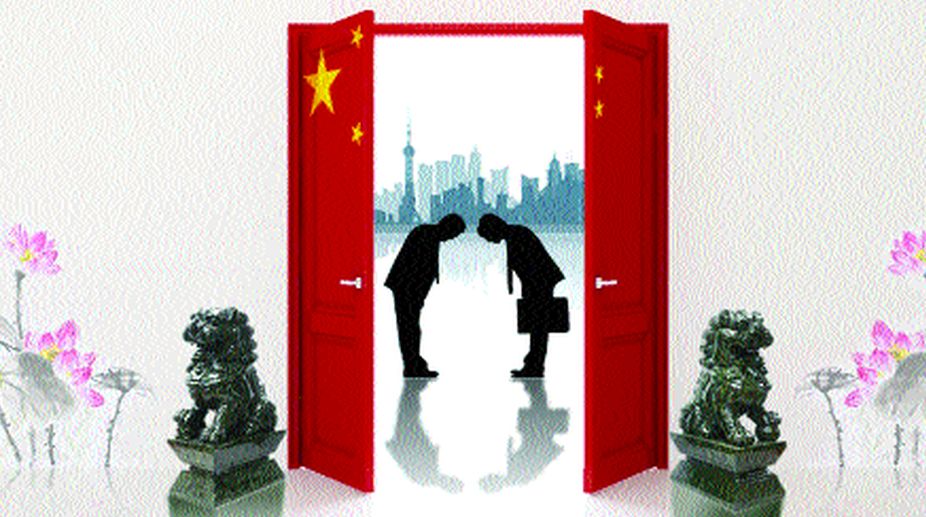Study finds petrochemical industries behind winter ozone pollution
Severe wintertime ozone (O3) pollution may be driven by alkene emissions from local petrochemical industries, and can be detrimental to human health, finds a study.

These are dark days for Hong Kong. Its freedom index has just been further downgraded by Washington-based Freedom House to 61 points out of 100, continuing the downward spiral of recent years — a result of increasing interference by Beijing in the territory’s domestic affairs despite China’s promises of autonomy.
The abduction of Chinese billionaire Xiao Jianhua from his residence in the Four Seasons Hotel on the eve of Chinese New Year is a sign that, despite global criticism over the kidnapping of Hong Kong booksellers in 2015, Beijing continues to take actions that recklessly jeopardise Hong Kong’s status as an international financial center, damaging China’s own interests in the process.
Advertisement
After all, Hong Kong is still a big asset for China, for example, in helping in the internationalisation of the Chinese currency. Beijing likes to say that what’s good for China is good for Hong Kong. But it is equally true that what’s good for Hong Kong is good for China.
Advertisement
Many people these days are speaking up for Hong Kong. A group of China specialists, led by Orville Schell of the Asia Society and Susan L. Shirk, who served as deputy assistant secretary of state during the Clinton administration, has prepared a report on U.S. policy toward China, with recommendations for the new Trump administration.
Where Hong Kong is concerned, the task force recommends that the U.S., while recognizing Hong Kong as part of China’s sovereign territory, should also reiterate the importance it places on the full and faithful implementation of the letter and spirit of the Basic Law and the Sino-British Joint Declaration guaranteeing Hong Kong a ‘high degree of autonomy’ within the ‘One Country, Two Systems,’ formula."
The policy recommendation says: "The United States also should publicly call attention to the concerning trend of encroachment by Beijing on Hong Kong’s autonomy and should increase cooperation with the Special Administrative Region government of Hong Kong in various functional domains that can reinforce its promised degree of autonomy. The U.S. Congress should continue its tradition of issuing annual reports concerning political developments in Hong Kong and its changing relationship with Beijing."
Meanwhile, Chatham House in London issued a research paper, "The Critical Transition: China’s Priorities for 2021" — the year marking the centenary of the founding of the Communist Party of China.
In a thoughtful chapter, Tim Summers sees Hong Kong facing serious challenges with even the survival of the handover deal itself in question.
"The centre of political gravity in Hong Kong is shifting away from the mainland at the same time as their economies are increasingly intertwined," Summers argues. "The contradictions this brings will unsettle Hong Kong society further, and anti-Beijing sentiment in Hong Kong is likely to grow."
Concern about Hong Kong is also voiced by a third group, PEN America, an organization of writers, editors and publishers that supports free expression. Its lengthy document, "Writing on the Wall," examines in detail the abductions of Hong Kong booksellers in 2015, in particular, that of British national Lee Bo in Hong Kong and Swedish national Gui Minhai in Thailand.
In its conclusion, the organization asserts that "the threats to the civil and political rights of Hong Kong residents after 1997 are abundantly documented" and recommends vigorous action by various governments to publicize Chinese violations of international law.
Of course, abductions by Chinese governments did not begin with the communists. Sun Yat-sen was kidnapped in London in 1896 and imprisoned in the Chinese legation; luckily, he was rescued by British friends before he was shipped off to China to be executed. Paradoxically, Hong Kong historically provided sanctuary to dissidents and independent thinkers, from China and elsewhere. Philippine nationalist Jose Rizal, Vietnamese revolutionary Ho Chi Minh and even underground Chinese communist party members all sought, and found, refuge under the British colonial flag.
The provision of haven continued even after 1997 because of "one country, two systems." The policy recognized that Hong Kong’s value to China lay in it being different from the mainland, despite the inherent tension that is implied. After all, China’s 1.3 billion people don’t need another Chinese city. China should realize that relentless suppression is not a wise policy. A little breathing space to provide an outlet for pent-up emotions, which Hong Kong represents, is good for the country. That is to say, doing right by Hong Kong is also a plus for China. Allowing criticism — and critics — to exist in Hong Kong won China plaudits for the last two decades. Continued tolerance will gain goodwill for China, not least from Hong Kong’s many friends around the world.
China post/ann.
Advertisement